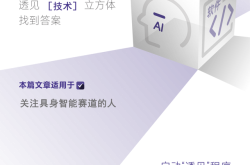AI Large Models + News: Revolutionizing News Reading
![]() 07/11 2025
07/11 2025
![]() 452
452
The demand for news reading among users is becoming increasingly straightforward.
"From 'information scarcity' to 'information explosion,' an increasing number of individuals are seeking a service that sorts out the intricacies of events and filters out meaningless information for them."
Senior media professional Zhang Wei penned these words while chronicling the story of Time magazine founder Henry Luce.
From print media to online media, and then to social networks where everyone has a voice, how can one swiftly sift through the deluge of information to find high-quality, genuinely valuable content?
Enhancing the efficiency and quality of information acquisition is paramount for current news clients leveraging AI advancements.
In the era of personalized recommendations, AI has become the gateway to customized content consumption. With the advent of generative AI, news apps like Today's Headlines, Tencent News, and Sina News are actively embracing the myriad possibilities offered by AI functionalities: AI summarization allows for quick perusal of lengthy articles; AI term interpretation demystifies obscure jargon...
So, are these AI features merely showy or genuinely designed to meet user needs?
Evaluating Today's Headlines, Tencent News, and Sina News, we endeavored to ascertain whether AI-integrated products truly aid users in saving time and effort while reading.
Upon opening multiple news apps, AI is nearly ubiquitous across every operating interface:
From the prominent "AI" agent logo in the top-right corner to word-based searches within the reading interface, trending topic recommendations at the end, and even in the comments section, the figure of AI chat companions has emerged.
It is evident that all news apps on the market are actively integrating various new functionalities derived from generative AI.
Upon clicking on an article, the author observed AI's presence from start to finish during the reading process.
Taking Tencent News as an example, when an article is opened, it features an "Ask AI" entry at the beginning, supporting direct questions based on the article's content.
As you scroll down and read, AI becomes a "dictionary" that can be consulted at any time during the reading process.
For instance, when users read news articles in technology and finance, there are often terms that are difficult to understand. Previously, apps would embed a search engine interface within the app for users to find explanations themselves. Today's Headlines still employs this method.
With AI taking over, proper noun explanations can be provided by a large model, eliminating the need for users to switch to other apps to find explanations. It directly generates answers for users.
Currently, both Tencent News and Sina News have introduced the function of AI word search within their articles. The former is searched via the agent "News Sister," while the latter is searched via the agent "Wisdom Xiaolang".
In terms of search accuracy, "News Sister's" search is based on the extension of the article's content. After providing an answer, it also offers follow-up questions for users to continue inquiring. Sina's search is solely based on comprehensive word searches. In cases of polysemy, it can easily provide answers that do not align with the article's content. For example, when searching for "TWS" in an article introducing Bluetooth headphones, "Wisdom Xiaolang" provided an explanation of the Korean male band with the same name.
Additionally, Tencent News offers an exclusive "AI explicit word highlighting" feature. For professional vocabulary, obscure neologisms, buzzwords, foreign language terms, abbreviations, etc., in various vertical fields, it directly underlines and annotates them in blue. Users simply need to click to view the corresponding explanation.
Besides word-based searches, AI-based news recommendation services frequently appear in these three apps, such as extended reading content recommendations derived from trending topics at the end and collections of AI news feature content.
It is evident that with AI support, the reading process that previously required multiple apps to collaborate is now being integrated into a single app interface by news apps.
In terms of enhancing reading efficiency, AI has indeed helped users read faster and more thoroughly.
Beyond article reading, the figure of AI has also begun to emerge in video playback. After experiencing it, among the aforementioned three products, only Tencent News has considered the combination of video watching and AI, launching three AI functions related to video.
In video and live streaming scenarios, Tencent News has rolled out different functions tailored to the context. Among them, the video interface supports sharing videos with the agent "News Sister," enabling users to ask questions while watching; the live streaming function features AI summarization and AI real-time Chinese-English subtitle translation. AI summarization condenses key content into a text version, not only addressing the issue of users joining midway through not knowing what was previously said but also allowing users to review the video's key points at any time.
In addition to articles and videos, intelligent agents have become a prominent feature embedded in all three apps. Upon opening the app's main interface, Sina News's "Wisdom Xiaolang" and Today's Headlines's "Headlines AI" are uniformly placed in the top-right corner. Tencent News places the entry for the agent "News Sister" in the personal interface, and during article reading, if "News Sister" has been used, the "News Sister" floating icon appears in the bottom-right corner for easy recall at any time. Even in the comments section, the author observed "News Sister's" interactive comments.
Among them, Sina's "Wisdom Xiaolang" and Today's Headlines's "AI Assistant" are single agents, while Tencent News's "News Sister" focuses more on multiple agents tailored to various vertical scenarios, encompassing health, college entrance exams, cultural and entertainment programs, gold prices, lotteries, and other contexts. Today's Headlines has set up some AI extension functions, but most are related to lifestyle and entertainment content.
Trending topic management has always been a critical aspect of news and information. The most intuitive function of intelligent agents is for trending topic tracking. Currently, the intelligent agents of all three apps can perform basic event analysis and provide answers for trending topics.
For example, when the author asked "News Sister" about China-US tariffs, it not only generated a brief summary and related information push but also included the "Event Timeline" function below to directly explain the intricacies of the matter to users with one click.
It is worth mentioning that while considering trending topics, Tencent News's "News Sister" further takes into account the experience of vertical users and has designed more functions aligned with users' habits in vertical industry scenarios.
For example, for a user who frequently reads financial news, keeping track of company movements, IPO situations, etc., are standard operations. Tencent News's vertical intelligent agent "Financial Assistant" has set up functions such as inquiring about companies, IPOs, exchange rates, etc., and summarizes the key dynamics of the company of interest for the day with one click.
On the other hand, Today's Headlines chooses to focus on distribution, which it has always excelled at. It has launched an exclusive feature called "AI Subscription," which pushes fast news content selected by AI based on detailed tags.
After the overall experience, Today's Headlines slightly lags in terms of AI and news scenario adaptation, while Sina News and Tencent News have both made certain functional adaptations for reading scenarios, and AI functionalities have been smoothly integrated into more reading scenarios. In comparison, Tencent News boasts a richer functional design, allowing it to adapt to a broader range of scenarios.
As users leverage AI to "simplify complex information," news apps will also complete the transition from information portals to information services.
From the centralized information of portals, to the "thousands of faces" of algorithm distribution, and then to the full integration of AI in news clients, the news reading experience is ushering in its third revolution.
In the evolution of information distribution, users have transformed from passive recipients of news to active screeners.
In the portal-dominated era, information primarily relied on websites to aggregate content from various media, which was then manually reviewed by editors and ultimately pushed to users indiscriminately. Represented by Today's Headlines, with the maturation of recommendation algorithm technology, the era of personalized distribution has arrived, and news platforms have begun to recommend content based on users' browsing history and interest preferences.
With the transformation of media formats, information is exploding, and users often struggle to find useful content.
As an efficiency tool, AI can help users obtain high-quality content in a one-stop manner more efficiently, and even allow platform algorithms to adapt to users' needs and generate customized content.
Beyond screening information and enhancing reading efficiency, as AI delves deeper into the operational aspects of traditional news formats, from content production to distribution and dissemination, to user consumption experience, AI is reshaping the user experience for both creators and consumers.
At the news production end, intelligent tools are used to supervise and assist in creation, even handling some image generation and design tasks; at the distribution end, recommendations are made more precise and can be dynamically adjusted based on changes in users' interests, gradually evolving from basic interest classification recommendations to value preference classifications; at the consumption end, various AI functionalities that enhance efficiency and intelligent agent services that provide comprehensive Q&A have become the main areas of competition for news apps.
Some possibilities are emerging: for instance, at the distribution end, relying on AI, one only needs to describe personal needs to customize a daily news report that fully meets their taste; at the consumption end, users can request to see only the content they need. For example, if a user wants to know the process of the Iran-Israel conflict and its impact on both countries, they simply need to ask the question to AI, which can directly find the required information from hundreds of articles in the information database and "sort out" an answer that the user desires.
However, the current application of AI still faces the challenge of insufficient professional depth, which is also evident on the news app side.
Currently, the AI of most news apps directly calls large models to provide services but lacks expertise in news and content accumulation in corresponding reporting fields. With the support of deep thinking mode, the hallucination problem further impacts the accuracy of AI-generated and summarized content.
The BBC released a test result in February this year. When testing four AI assistants - ChatGPT, Copilot, Gemini, and Perplexity - to summarize questions, more than half of the content was inaccurate. And in the current popularity of deep thinking, the mode of handing over AI to think independently has further exacerbated the hallucination problem.
How can quality and reliable answers be provided?
One solution is to delve into the industry and transform AI from a "general information summarizer" to a "comprehensive domain expert" by accessing vertical intelligent agents, achieving a qualitative leap in news value.
Taking sports news as an example, how can users quickly understand the meaning of professional terminology and truly grasp the news?
Relevant vertical intelligent agents ensure content accuracy by accessing knowledge bases. Such vertical intelligent agents can be used to inquire about professional terms and can also be asked to help review match records and history, enabling beginners to quickly fill in knowledge gaps.
For news apps, while evolving with AI, how to further integrate AI and news is the key to enhancing the reading experience in the future. Starting with basic efficiency-boosting functionalities like asking AI and AI word-based search, information platforms are gradually progressing towards in-depth applications such as vertical intelligent agents and AI customization that are more aligned with user needs.
The author observed that Tencent News has just launched the AI Morning News feature. Simply enter keywords and customization requirements, and AI will precisely filter through massive information to generate highly relevant news bulletins and proactively push them daily. Taking "Tencent Daily Dynamics" as an example, from stock price changes, personnel adjustments to the company's new product launches, they can all be precisely "fished out" by AI from the sea of information.
With the support of AI, the prelude to the third revolution in the information industry is slowly unfolding.






